
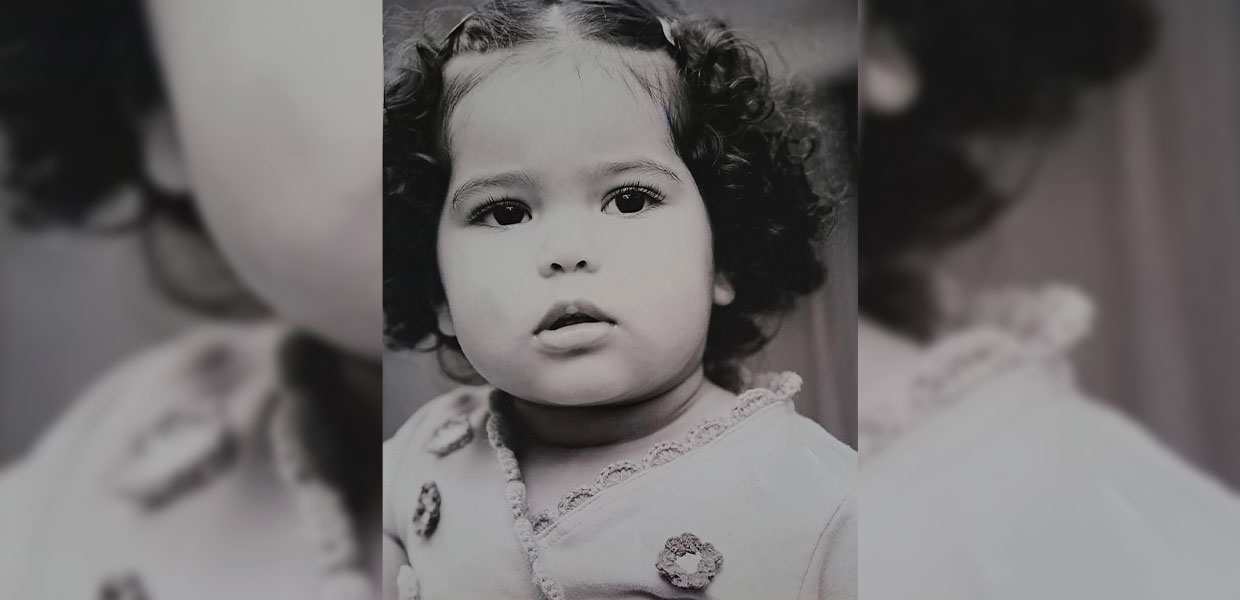
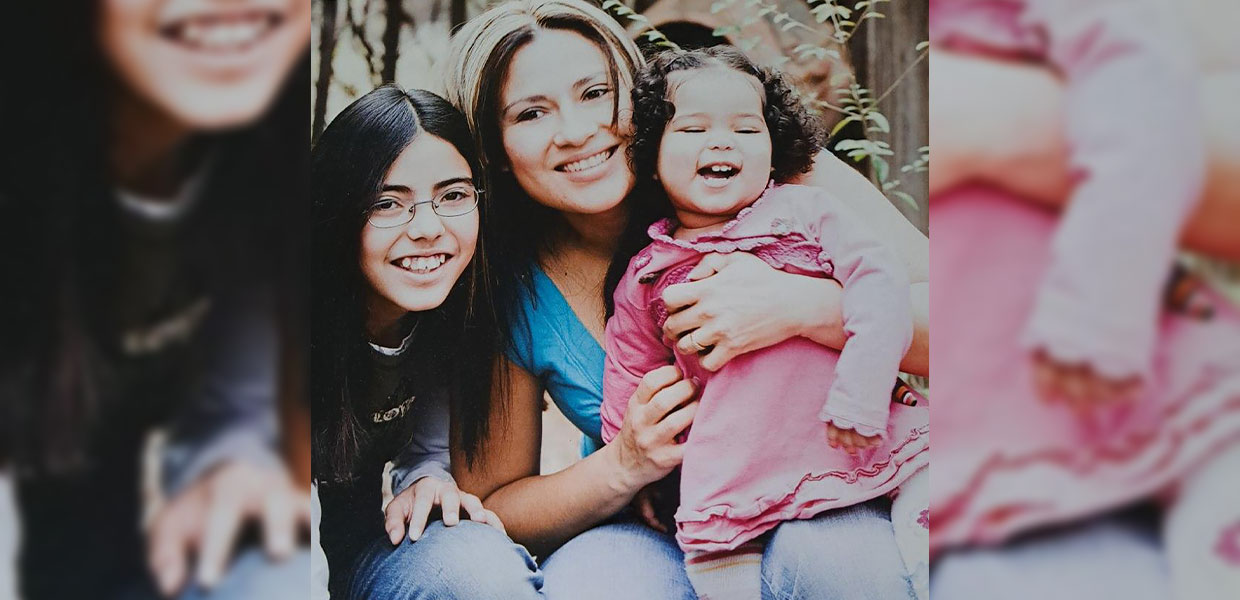
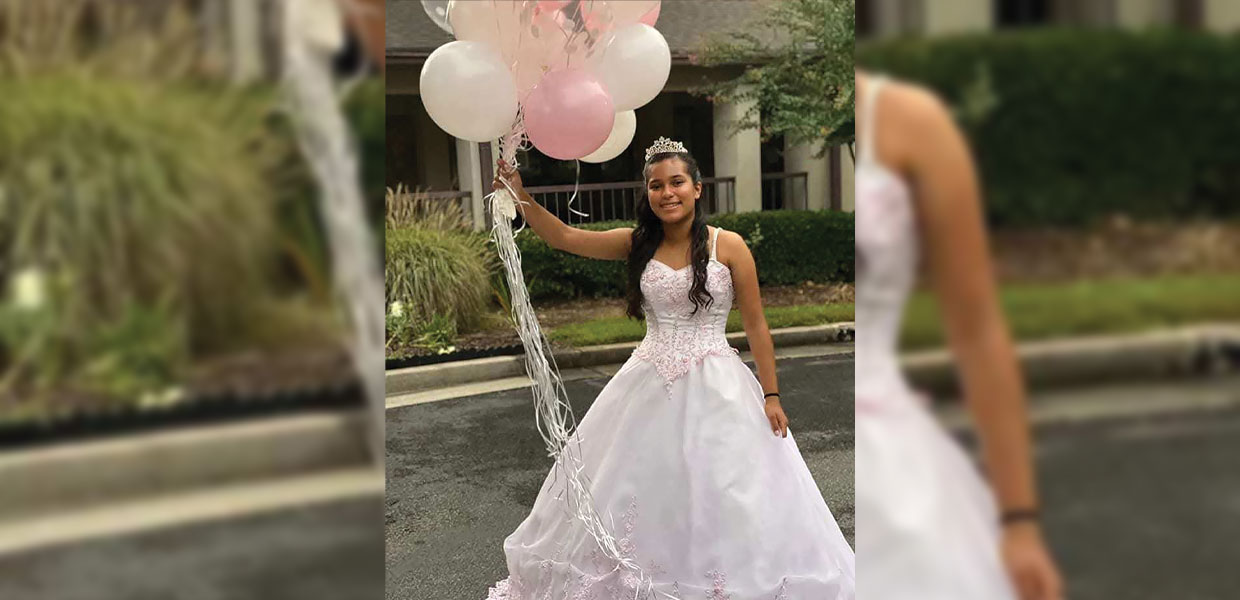
/span>
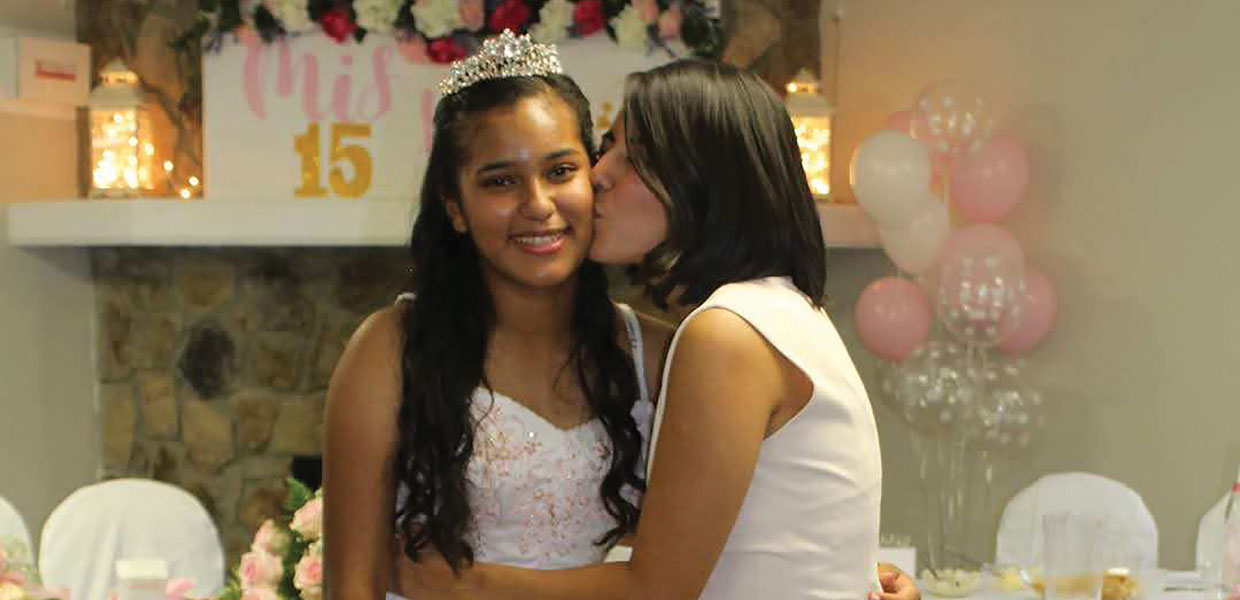
s
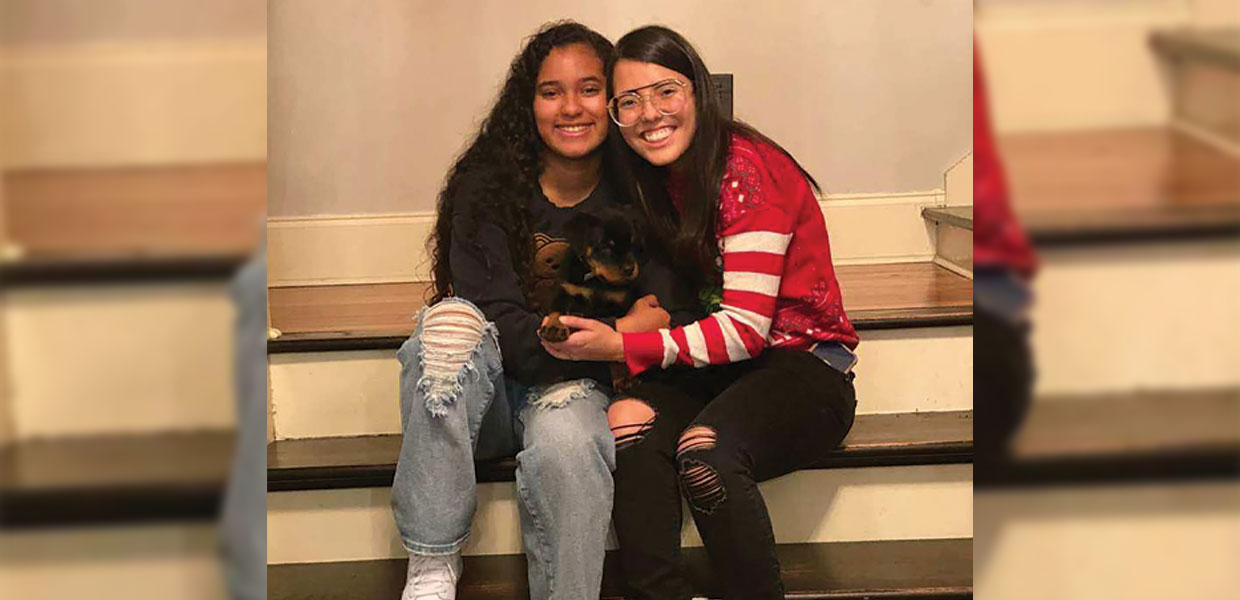
/span>
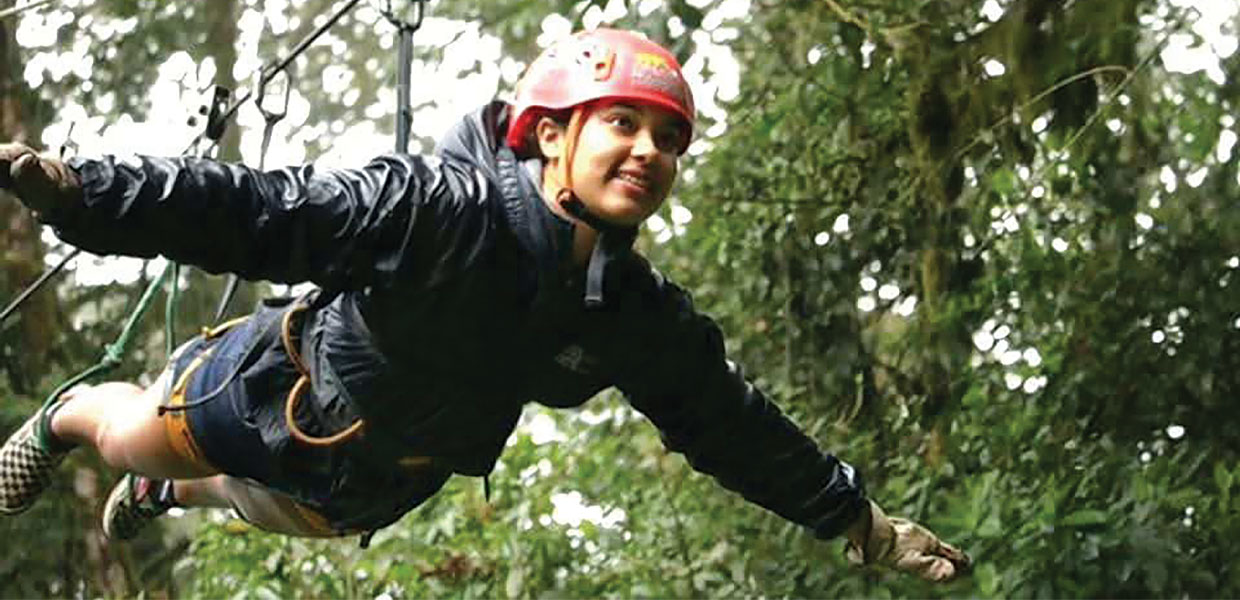
/span>
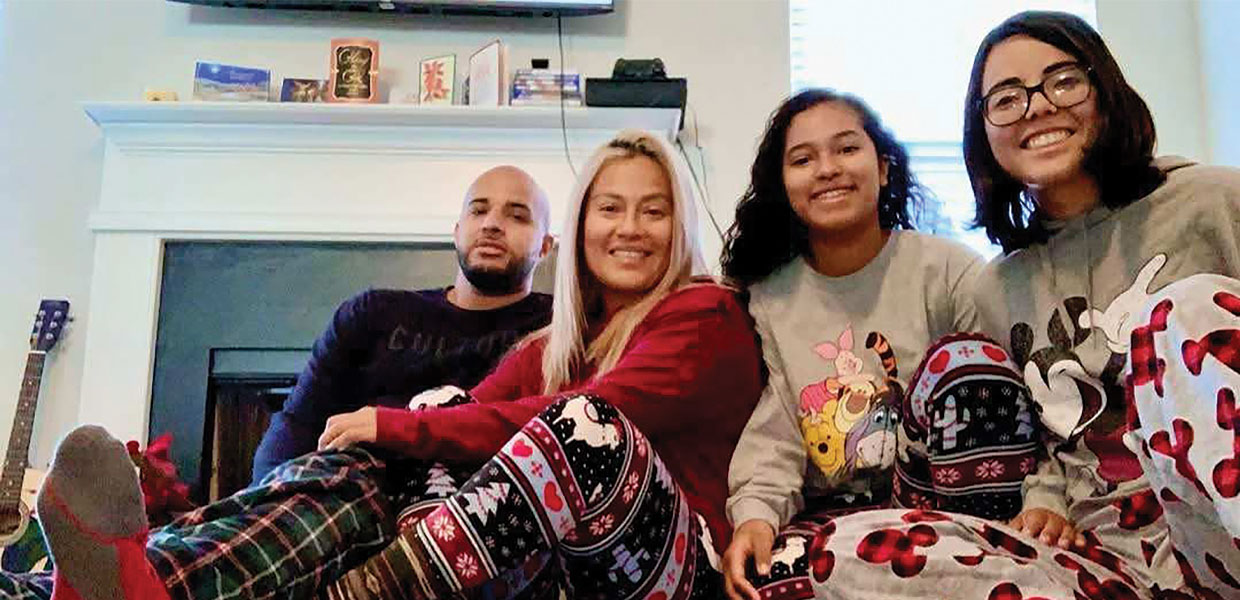
/span>
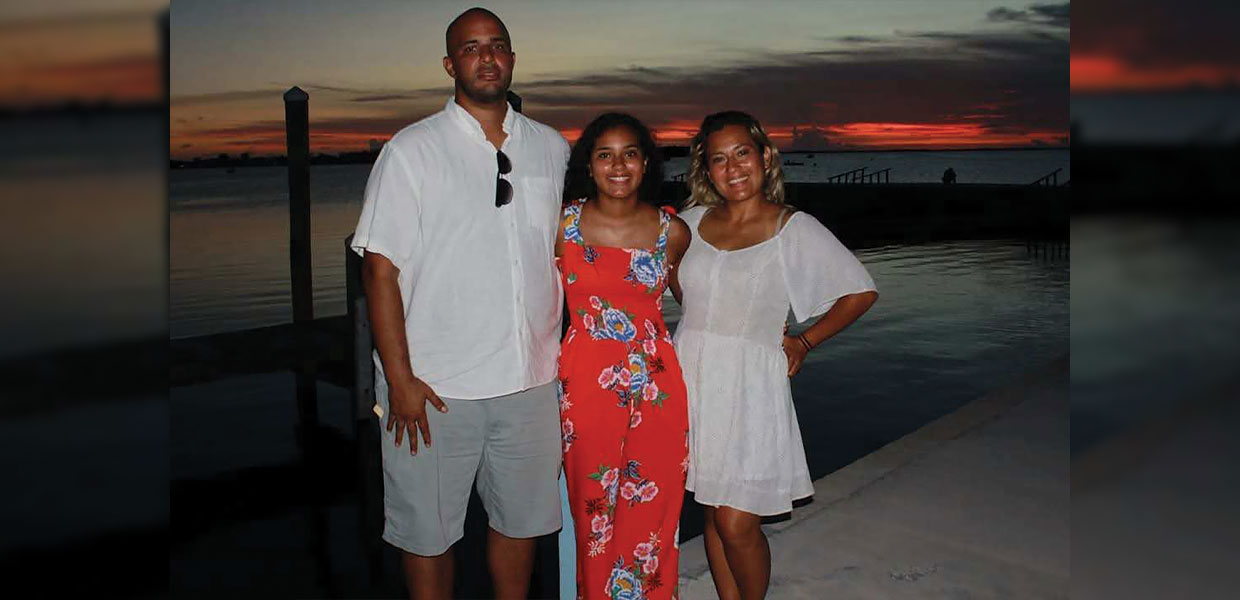
/span>
Edward Bryan glanced at the passenger seat. Valeria was asleep, curled against the window, her chest rising and falling with each breath. Their weekly early-morning drive from Warner Robins to Atlanta, Georgia, had become a ritual. Twenty-eight more rides, he counted. Twenty-eight more car rides before his daughter finished high school.
He didn’t know this was their last.
__________________________
Single mother Xinia Rivas stared at the pregnancy test. Two months. She and Edward had been together only two months. They loved the parties, the drinks, the rush of music and laughter. But a baby? That hadn’t been part of the plan.
She didn’t want her baby to grow up in the environment in which she was currently indulging. So, she made a choice. She would change.
She stopped partying. She stopped drinking. She started going to church with her 10-year-old daughter, who had recently been baptized. She felt God tugging at her through it all — whispering for her to accept Him into her life. Eight months after Valeria was born, Xinia stepped into the baptismal waters, reborn too.
Edward had wanted to change for years, but he never had a reason. Valeria gave him one. When she was 2, he was baptized.
“Jesus transformed my life, but Valeria was the reason,” said Edward. “She was the motivation for me to seek a change.”
Two years later, Edward felt called to ministry. The family packed their bags and moved to Tennessee so he could study theology at Southern Adventist University. That’s when Valeria’s faith started to bloom.
“She was 5 years old, getting up and spending time with God by herself,” said Edward.
Page after page, she scribbled notes, underlined passages, filled the margins with deep thoughts.
“It’s amazing how this kid understood the Bible,” said Xinia.
When Valeria was 7, they moved to New England so Edward could pastor. That same year, she sang in harmony for the first time. No one had taught her — she just did it.
Over the next few years, they saw Valeria’s hobbies bloom. She enjoyed basketball, and from a young age people were impressed with her talent.
“I thought she was going to be like a crazy basketball phenom or something,” said Edward.
She would read for hours, absorbing every story she read.
She also continued to develop musical skills — eventually learning four instruments.
Books became her refuge. Basketball, her passion. Music, her gift.
“She had a really good sense of humor. She was very creative. She had a very quick wit. She was very musical. She was athletic,” said Xinia.
But, she also had struggles.
The anxiety started early. The wobbly voice when reciting Bible verses publicly. The way she clung to Edward on the first day of school, too afraid to go inside.
Then, at 7, the same age she started to harmonize, she whispered something that froze her parents in place.
“I don’t know if I want to keep living; life is hard.”
For years, they listened closely for any signs that Valeria still felt that way, but it would be 10 years before they heard her express those words again.
__________________________
When she was 12, the family moved again — to Georgia. Another new school, Valeria’s third school in just four years. Another set of strangers. Valeria’s journal filled with questions:
Would she make friends? Did she belong?
Edward, worried, read those pages when she wasn’t home.
When Valeria began high school at age 13, Valeria’s journal revealed a new storm of anxieties.
A crush on a boy. Fear of being noticed. Bullying. Insecurities about her reflection. Ordinary teenage worries, maybe. But in Valeria’s journal, they looped and deepened, taking hold.
Partway through freshman year came COVID, and with it came more time at home. School at home. Church at home. Activities at home.
Isolation set in, thick and heavy, just like Valeria’s increasing sadness.
By the end of her junior year, fear gripped Valeria. Her journal revealed she feared the impending future — making choices about college and independence. It felt like too much. Xinia and Edward were worried too. They watched as their daughter hesitated before simple tasks — ordering at Chipotle or getting out of the car to attend a school function.
Yet, they hoped this was just a stage, a time of high pressure and stress that would melt away as time progressed. But as the months inched forward, they realized Valeria’s struggles were persisting. Even though she continued daily spending time alone with God through prayer and Bible reading, she stopped so many other things she’d once appreciated. She stopped enjoying basketball. She stopped reading for pleasure. When Valeria refused her favorite Starbucks treat, Xinia realized Valeria no longer enjoyed simple pleasures. Xinia saw her joyless face and knew the need for change was urgent.
Xinia quit her job to stay home with Valeria. For two months they desperately searched for a therapist. Nothing. Then finally, someone. Week after week, Valeria went. But she never said if it helped. Xinia didn’t push.
Xinia and Edward decided the family needed a vacation, so they packed their bags and went to Costa Rica. Despite the sunny atmosphere and various activities, Valeria was sad throughout the trip. The only break from her sadness was as she sailed through the air on a zipline between the Costa Rican trees. The wind rushed past her face as she soared high above the ground, a smile fixed in place.
“She was so happy that we did that. That was one of her happiest moments I think,” said Xinia. “In the pictures [of her zip lining], she’s like a bird, completely free.” Then they came home. The crying and sleepless nights resumed. Valeria climbing into her parents’ bed, needing to be close.
“What’s wrong?” Xinia would ask.
“I don’t know,” Valeria would cry. “I’m just sad. Sometimes I don’t know if I want to live.”
On January 17, 2023, Edward counted 28 more morning car rides before Valeria finished high school. But that night, when he and Xinia received a goodbye text, they knew. There were no more drives.
Valeria had died by suicide.
_______________________
Their daughter was gone. The pain — immeasurable.
“It was a really dark, really dark moment,” Xinia whispered.
Tears racked Edward’s body. Xinia’s legs buckled. She knelt beside Valeria, praying. That night, Edward felt himself sinking into hopelessness, the loss too much to bear. He had lost his only biological child, the motivator to transform his life. He didn’t think he could make it through the night. He felt the devil mocking him, as if abandoned by God, and all he saw was empty darkness. But Xinia held him, prayed with him, and anchored him, and together they made it through the first night without their daughter.
As the news of Valeria’s passing spread, the phone calls, texts, and other forms of sympathy flooded in. Condolences from every direction. Family, friends, strangers — all reaching out offering prayers, offering sympathy.
The funeral came days later. The sanctuary smelled of roses and salt — funeral flowers and tears. Damp tissues crumpled in fists, and sleeves wiped away stray tears. One by one, people shared their memories of Valeria. She was their friend, their cousin, their granddaughter, and their sister. She was loved.
“She made me feel comfortable for being myself….” said a classmate, voice cracking as she read from her phone. “She had wisdom beyond her years to pass to me when I needed it most Valeria was such a constant in my life.”
Family members spoke, their voices wavering, tears halting their words. The service was a confirmation of what still felt unreal — Valeria was gone.
After the funeral, the check-ins continued. “How are you doing?” “We’re praying for you.” But, as months passed, the messages slowed. The grief did not.
“I still feel the same pain, maybe not at the same level as the beginning, but the pain is constant, and it’s there,” said Xinia. “You know, it’s 24/7. If I’m awake, I’m thinking about my child, I dream [about] her, wake up thinking of her, go to sleep thinking of her.”
The grief was also etched deeply into Edward’s life. For half a year, he struggled to pray alone. The words, the silence, both were too painful. But he prayed with others. He leaned into the community that formed around him. He needed a group of people he could open up to, and a strong group that could support him.
“You have to have a support group, or you have to build one,” reflected Edward. “You need to actually form relationships with bonds and get in the habit of opening up.”
Edward experienced firsthand the power of community. Today, his church has various groups where people can connect and remind each other they are not alone in their struggles.
Xinia found self-care and therapy helpful. Hot baths, massages, pedicures — small comforts to ease the weight of loss. Xinia emphasized the importance of self-care, recognizing it as a crucial part of the grieving process. She shared how intentionally setting aside time for activities she enjoyed helped her decompress. She also spoke with a therapist, unpacking the grief that settled over her.
They learned to grieve in different ways. Together. Apart. Through community. Through solitude. But always with one thing holding them up.
Jesus.
Edward believes faith is the only reason he stands. Without it, he says, he would have crumbled. He compares grief to weightlifting — the burden never lightens, but the muscles of faith grow stronger.
“The weight hasn’t gotten lighter, but God has given me strength,” said Edward. “God has made me stronger to endure it.”
Xinia echoes his sentiments. She sees Valeria’s death as an attack of the enemy — the worst loss a mother could face. But she sees God as a strong foundation through the storm.
“It’s a nightmare. We’re still in the nightmare. But God is so faithful,” said Xinia. “It’s been two years, and He has not left us alone at all. He’s been very real in this journey.”
When human comfort fails, God’s outstretched arms are always there. When they need to talk through their feelings, God’s listening ear hears their fragmented prayers.
In their brokenness, God has become more real. They seek Him daily, knowing they cannot go a single day without His presence. Xinia and Edward met in a world of partying and distractions. They’ve seen what the world offers. And they know Jesus is their only hope.
“I’ve emerged way more persuaded of the reality of God, of His love, of His second coming. All of those things are much stronger, much more cemented than they were before,” said Edward.
Xinia and Edward remember Valeria’s laugh. Sometimes, Xinia replays old videos just to listen — to hold onto the sound a little longer. Their suffering has drawn them closer to God.
Their loss has strengthened their faith. Their longing to see Valeria again has deepened their desire for Jesus’ return. The sweet promise of Heaven is even sweeter now — a place with no more tears, no more death, and no more pain.
HOPE: HOLD ON PAIN ENDS
Edward Bryan encountered this acronym after his daughter, Valeria, passed away. He now shares it with those facing mental health challenges, encouraging them to persevere because pain is temporary. “The only time that the pain does not end is when we decide to give up, at which point the pain is inevitably transferred to those who love us,” said Edward.
Resources for Individuals Experiencing Anxiety, Depression, or Grief
(This compilation includes suggestions from organizations such as the Centers for Disease Control and Prevention [CDC], Anxiety and Depression Association of America, National Institute of Mental Health, and insights from Xinia and Edward. These resources are not a substitute for professional medical advice, diagnosis, or treatment. Each person’s situation is unique, so we encourage you to consult with a qualified mental health professional or healthcare provider to determine the best course of action for your individual needs.)
- Call or Text the 988 Suicide and Crisis Lifeline: For immediate support dial 988 to connect with trained counselors available 24/7.
- Connect with Your Primary Care Provider: They can assess your overall health and recommend appropriate treatments of referrals.
- Consider Medication: Discuss with a healthcare professional whether medication might be beneficial to your condition.
- Consult a Therapist: Professional therapists can provide coping strategies tailored to your situation.
- Join a Support Group: Connecting with others who have similar experiences can provide a sense of community and understanding.
- Practice Self-Care: Engage in activities that promote well-being, such as exercise or hobbies.
- Reach Out to Trusted Individuals: Engage in conversations with close friends or loved ones to share your feelings and receive support.
- Seek Spiritual Support: Connect with your faith community for prayer and emotional support.
Southern Union | April 2025



Comments are closed.